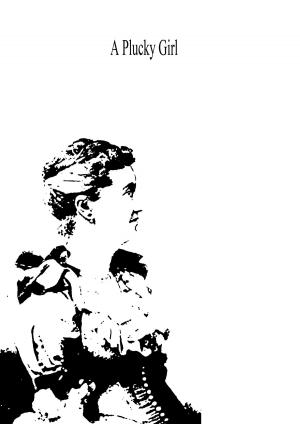| Author: | Charles Duke Yonge | ISBN: | 1230000105623 |
| Publisher: | Zhingoora Books | Publication: | February 9, 2013 |
| Imprint: | Language: | English |
| Author: | Charles Duke Yonge |
| ISBN: | 1230000105623 |
| Publisher: | Zhingoora Books |
| Publication: | February 9, 2013 |
| Imprint: | |
| Language: | English |
PREFACE.
Mr. Hallam's "Constitutional History" closes, as is well known, with the death of George II. The Reformation, the great Rebellion, and the Revolution, all of which are embraced in the period of which it treats, are events of such surpassing importance, and such all-pervading and lasting influence, that no subsequent transactions can ever attract entirely equal attention. Yet the century which has elapsed since the accession of George III. has also witnessed occurrences not only full of exciting interest at the moment, but calculated to affect the policy of the kingdom and the condition of the people, for all future time, in a degree only second to the Revolution itself. Indeed, the change in some leading features and principles of the constitution wrought by the Reform Bill of 1832, exceeds any that were enacted by the Bill of Rights or the Act of Settlement. The only absolutely new principle introduced in 1688 was that establishment of Protestant ascendency which was contained in the clause which disabled any Roman Catholic from wearing the crown. In other respects, those great statutes were not so much the introduction of new principles, as a recognition of privileges of the people which had been long established, but which, in too many instances, had been disregarded and violated.
But the Reform Bill conferred political power on classes which had never before been admitted to be entitled to it; and their enfranchisement could not fail to give a wholly new and democratic tinge to the government, which has been visible in its effect on the policy of all subsequent administrations.
And, besides this great measure, the passing of which has often been called a new Revolution, and the other reforms, municipal and ecclesiastical, which were its immediate and almost inevitable fruits, the century which followed the accession of George III. was also marked by the Irish Union, the abolition of slavery, the establishment of the principle of universal religious toleration; the loss of one great collection of colonies, the plantation of and grant of constitutions to others of not inferior magnitude, which had not even come into existence at its commencement; the growth of our wondrous dominion in India, with its eventual transfer of all authority in that country to the crown; with a host of minor transactions and enactments, which must all be regarded as, more or less, so many changes in or developments of the constitution, as it was regarded and understood by the statesmen of the seventeenth century.
It has seemed, therefore, to the compiler of this volume, that a narrative of these transactions in their historical sequence, so as to exhibit the connection which has frequently existed between them; to show, for instance, how the repeal of Poynings' Act, and the Regency Bill of 1788, necessitated the Irish Union; how Catholic Emancipation brought after it Parliamentary Reform, and how that led to municipal and ecclesiastical reforms, might not be without interest and use at the present time. And the modern fulness of our parliamentary reports (itself one not unimportant reform and novelty), since the accession of George III., has enabled him to give the inducements or the objections to the different enactments in the very words of the legislators who proposed them or resisted them, as often as it seemed desirable to do so.
PREFACE.
Mr. Hallam's "Constitutional History" closes, as is well known, with the death of George II. The Reformation, the great Rebellion, and the Revolution, all of which are embraced in the period of which it treats, are events of such surpassing importance, and such all-pervading and lasting influence, that no subsequent transactions can ever attract entirely equal attention. Yet the century which has elapsed since the accession of George III. has also witnessed occurrences not only full of exciting interest at the moment, but calculated to affect the policy of the kingdom and the condition of the people, for all future time, in a degree only second to the Revolution itself. Indeed, the change in some leading features and principles of the constitution wrought by the Reform Bill of 1832, exceeds any that were enacted by the Bill of Rights or the Act of Settlement. The only absolutely new principle introduced in 1688 was that establishment of Protestant ascendency which was contained in the clause which disabled any Roman Catholic from wearing the crown. In other respects, those great statutes were not so much the introduction of new principles, as a recognition of privileges of the people which had been long established, but which, in too many instances, had been disregarded and violated.
But the Reform Bill conferred political power on classes which had never before been admitted to be entitled to it; and their enfranchisement could not fail to give a wholly new and democratic tinge to the government, which has been visible in its effect on the policy of all subsequent administrations.
And, besides this great measure, the passing of which has often been called a new Revolution, and the other reforms, municipal and ecclesiastical, which were its immediate and almost inevitable fruits, the century which followed the accession of George III. was also marked by the Irish Union, the abolition of slavery, the establishment of the principle of universal religious toleration; the loss of one great collection of colonies, the plantation of and grant of constitutions to others of not inferior magnitude, which had not even come into existence at its commencement; the growth of our wondrous dominion in India, with its eventual transfer of all authority in that country to the crown; with a host of minor transactions and enactments, which must all be regarded as, more or less, so many changes in or developments of the constitution, as it was regarded and understood by the statesmen of the seventeenth century.
It has seemed, therefore, to the compiler of this volume, that a narrative of these transactions in their historical sequence, so as to exhibit the connection which has frequently existed between them; to show, for instance, how the repeal of Poynings' Act, and the Regency Bill of 1788, necessitated the Irish Union; how Catholic Emancipation brought after it Parliamentary Reform, and how that led to municipal and ecclesiastical reforms, might not be without interest and use at the present time. And the modern fulness of our parliamentary reports (itself one not unimportant reform and novelty), since the accession of George III., has enabled him to give the inducements or the objections to the different enactments in the very words of the legislators who proposed them or resisted them, as often as it seemed desirable to do so.



![Cover of the book Teach Your Kids About Country Flags [Vol 18] by Charles Duke Yonge](https://www.kuoky.com/images/2012/november/300x300/1230000029587-SiVd_300x.jpg)



![Cover of the book Twenty Thousand Leagues Under the Sea [Christmas Summary Classics] by Charles Duke Yonge](https://www.kuoky.com/images/2012/december/300x300/1230000034857-Olrv_300x.jpg)



![Cover of the book Felix Holt, The Radical [Christmas Summary Classics] by Charles Duke Yonge](https://www.kuoky.com/images/2012/november/300x300/1230000034643-NMiq_300x.jpg)
![Cover of the book The Letters [Christmas Summary Classics] by Charles Duke Yonge](https://www.kuoky.com/images/2012/november/300x300/1230000034628-17DB_300x.jpg)


